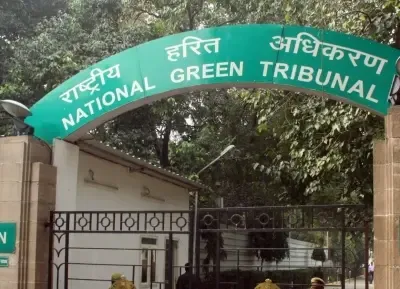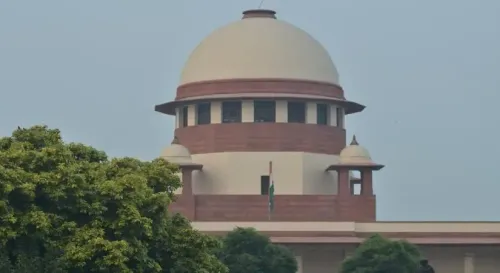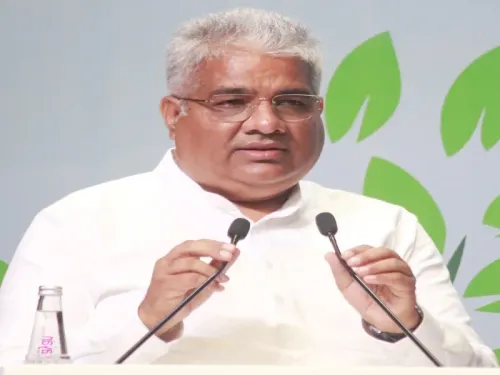Does NGT's Status Quo on Padampur Bus Stand Project Signal a Win for Environmental Concerns?

Synopsis
Key Takeaways
- NGT intervenes to protect local water resources.
- Community voices emphasize environmental preservation.
- Potential flooding risks raised by the project.
- Importance of alternative land options not considered.
- Long-term water sustainability at stake.
Bhubaneswar, Sep 25 (NationPress) The National Green Tribunal (NGT) issued a directive on Thursday to maintain a status-quo concerning the construction of a planned bus stand by the Odisha Transport Department, which entails the diversion of an existing water body in Padampur, located in the Bargarh district.
This order came in response to a petition contesting the diversion of the water body for the establishment of a block-level bus stand in Padampur.
Even though the construction has yet to commence, the transport department has already begun the process of filling the pond intended for the bus stand.
According to the petitioners, the authorities acted without exploring alternative land options, ignoring the negative environmental ramifications of draining the water body, and the potential for increased flooding in the area due to stormwater lacking a natural outlet, as highlighted by the applicants' lawyer, Sankar Prasad Pani.
The petition claims that the pond has historically functioned as a natural reservoir for rainwater and a crucial recharge point for the groundwater table, which supports not only local residents but also surrounding wells and agricultural lands.
The applicants emphasized that in a water-scarce region like Padampur, the loss of such natural water bodies is irreparable.
The disappearance of these vital resources would disrupt the local hydrological cycle and threaten water availability for future generations.
Furthermore, they voiced concerns that the removal of the pond, without a proper drainage system in place, would exacerbate the risk of severe waterlogging in nearby low-lying areas.
The petitioners also contended that their residences, which have become susceptible due to the newly compacted land from the fill-up, are now at an increased risk of backflow and flooding without the natural water body.
During the hearing, the tribunal remarked, "Given the statements made in the initial petition, and considering the facts and circumstances of the case along with the precautionary principle outlined in Section 20 of the National Green Tribunal Act, 2010, the respondents must maintain the current status-quo concerning the land claimed to be a water body/pond."









